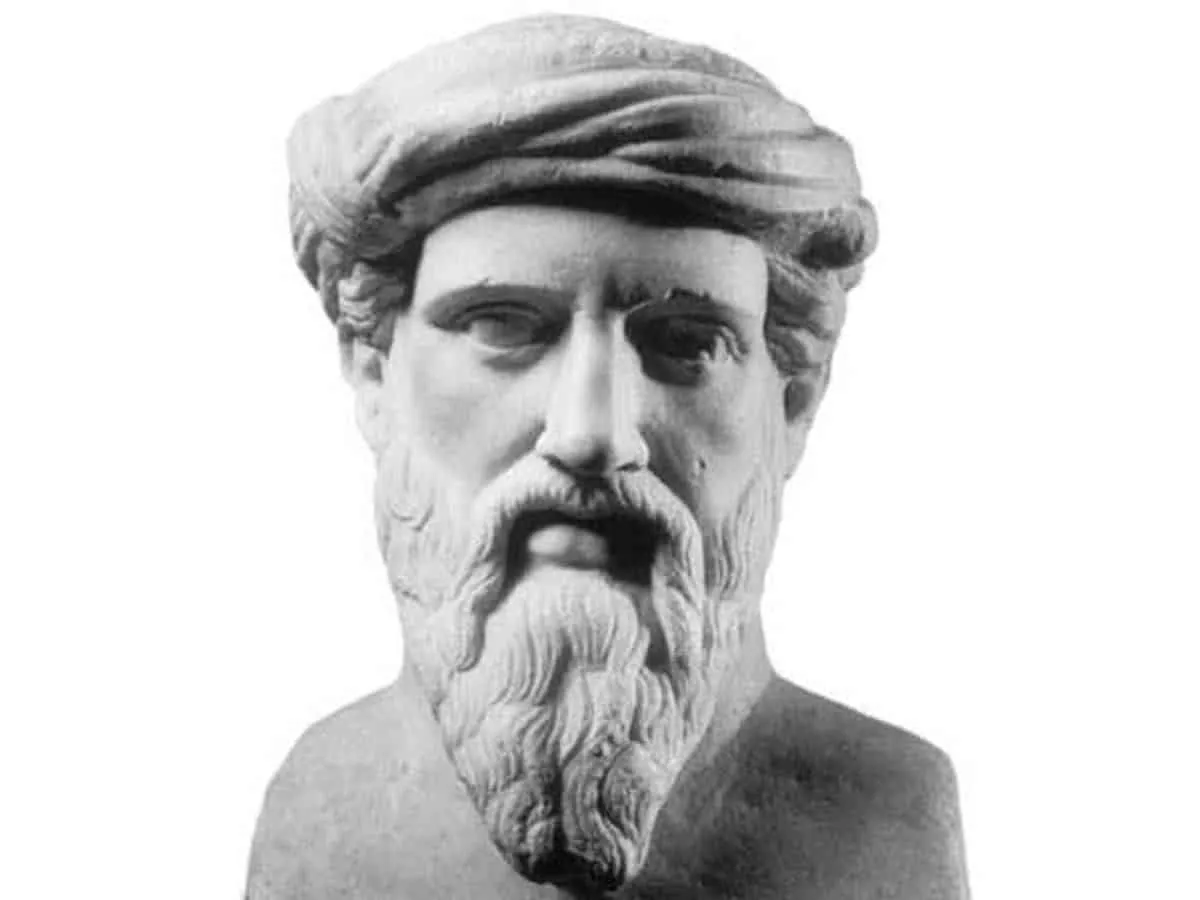
Pythagoras
Philosopher and mathematician

Do not say a little in many words, but a great deal in a few.

Wisdom begins in wonder.

Educate the children, and it won't be necessary to punish the men.

As long as man continues to be the ruthless destroyer of lower living beings, he will never know health or peace. For as long as men massacre animals, they will kill each other.

Friends are as companions on a journey, who ought to aid each other to persevere in the road to a happier life.

There is geometry in the humming of the strings, there is music in the spacing of the spheres.

The oldest, shortest words - 'yes' and 'no' - are those which require the most thought.

Silence is better than unmeaning words.

The soul is dyed the color of its thoughts. Think only on those things that are in line with your principles and can bear the light of day.

No man is free who cannot command himself.
Pythagoras, an ancient Greek mathematician, philosopher, and mystic, is known for his groundbreaking contributions to mathematics and his profound influence on various fields of knowledge. His theorem, the Pythagorean theorem, remains a fundamental concept in geometry, while his philosophical and spiritual teachings have left an indelible mark on Western thought. This article explores the life, accomplishments, and enduring legacy of Pythagoras.
Pythagoras was born around 570 BCE on the island of Samos, in the Aegean Sea. Little is known about his early life, but it is believed that he received a comprehensive education, studying mathematics, music, and philosophy under various prominent scholars of the time. His travels took him to Egypt, where he acquired knowledge of mathematics and astronomy, and to Babylonia, where he further honed his skills.
Upon returning to Greece, Pythagoras established a school known as the Pythagorean School in Croton (present-day Italy). This educational and philosophical community was dedicated to the pursuit of wisdom and the exploration of mathematical and metaphysical concepts. The Pythagorean School emphasized the importance of numbers and their mystical significance, believing that they formed the basis of the universe.
Pythagoras' most renowned achievement is the Pythagorean theorem, which states that in a right-angled triangle, the square of the hypotenuse (the side opposite the right angle) is equal to the sum of the squares of the other two sides. This theorem revolutionized the field of geometry and laid the foundation for further mathematical advancements.
Pythagoras and his followers also made significant contributions to number theory. They discovered numerical patterns and relationships, including the concept of perfect numbers and the distinction between odd and even numbers. Pythagorean mathematicians also explored the harmony of musical scales, relating musical intervals to numerical ratios, thus establishing a connection between mathematics and music.
Pythagoras' teachings extended beyond mathematics and encompassed a holistic view of the world. He believed in the transmigration of souls, advocating for vegetarianism and the concept of karma, asserting that one's actions in this life would determine their fate in future lives. His teachings emphasized the pursuit of virtue, moral purity, and the attainment of wisdom through contemplation and self-reflection.
Pythagoras' influence endured long after his death. His mathematical and philosophical ideas influenced notable mathematicians, including Euclid and Plato, and his school continued to thrive for centuries. The Pythagorean theorem remains a cornerstone of geometry and is taught in schools worldwide.
Furthermore, Pythagorean principles extended beyond mathematics. His teachings on the harmony of the cosmos inspired later thinkers, such as Johannes Kepler, who sought to uncover the mathematical laws governing the movement of celestial bodies.
Pythagoras was a multifaceted figure who made profound contributions to the fields of mathematics, philosophy, and spirituality. His theorem revolutionized geometry, and his teachings on numbers, music, and the pursuit of wisdom had a lasting impact on Western thought. Pythagoras' legacy endures, reminding us of the inherent connections between mathematics, philosophy, and the mysteries of the universe.
Recent Quotes
"To help a friend in need is easy, but to give him your time is not always opportune."
Charlie Chaplin
"Life can be wonderful if you're not afraid of it. All it takes is courage, imagination… and a little dough."
Charlie Chaplin
